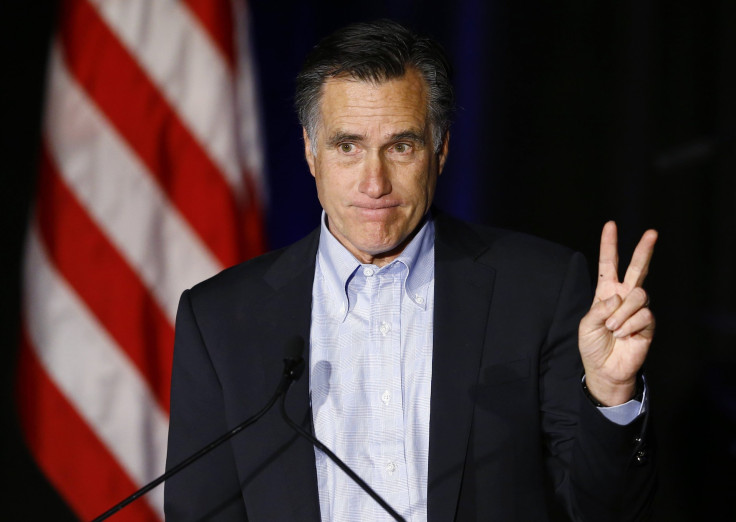Election 2016: Why Romney Won't Run: Fundraising, Difficult Primary Kept Him Out

WASHINGTON -- Mitt Romney prides himself on his ability to analyze data objectively. Looking at a bruising primary fight, a highly competitive race for money and the loss of support to Jeb Bush, the GOP's 2012 nominee calculated that he was unlikely to succeed in 2016, and he ended his presidential campaign before it got started.
“After putting considerable thought into making another run for president, I’ve decided it is best to give other leaders in the party the opportunity to become our next nominee,” Romney told supporters on a conference call Friday, reading prepared remarks and sounding glum. “I am convinced that we could win the nomination, but I fully realize it would have been a difficult test and a hard fight.”
And while he and those close to him insist otherwise, the series of staff defections to Bush and the loss of donors were a real problem for Romney. The network of bundlers and supporters that had been created over decades by the Bush family backed Romney in 2012. But now with a Bush likely on the ballot, they were quickly returning to the family that cultivated them. And New Jersey Gov. Chris Christie is going to be working to get some of those same donors into his camp.
Romney may have been able to overcome the fundraising woes. He still has a loyal stable of donors. And he is independently wealthy, meaning he could self-fund enough to be competitive.
“Our finance calls made it clear that we would have enough funding to be more than competitive,” Romney said. “With few exceptions, our field political leadership is ready and enthusiastic about a new race.”
But those “few exceptions” were more crucial than Romney let on. David Kochel, Romney’s Iowa director in 2012, defected to go work for Bush. And many of the staff that built out Romney's national campaign in 2012 also were moving over to back Bush. Some had worked for the Bush family before. Others simply saw Bush as a better candidate.
(Romney appeared to be taking some veiled jabs at Bush in his remarks on Friday. He encouraged those on the call to find fresh blood to back. “I believe that one of our next generation of Republican leaders, one who may not be as well known as I am today, one who has not yet taken their message across the country, one who is just getting started, may well emerge as being better able to defeat the Democrat nominee,” he said. “In fact, I expect and hope that to be the case.”)
But more important than whether Romney could have raised more money, was whether he could have persuaded more voters to side with him. In 2012, he benefited from a weak primary field. He was essentially the only moderate, and the conservative field was both overpopulated and underprepared.
Even so, Romney struggled. He never found a way to turn his experience at Bain Capital into an asset rather than a liability. Comments like the one about wife Ann driving "a couple of Cadillacs" made him easy to caricature as a plutocrat, while his shifting views on abortion and his championing of Romneycare in Massachusetts made it hard for voters to see him as "severely conservative."
© Copyright IBTimes 2024. All rights reserved.






















